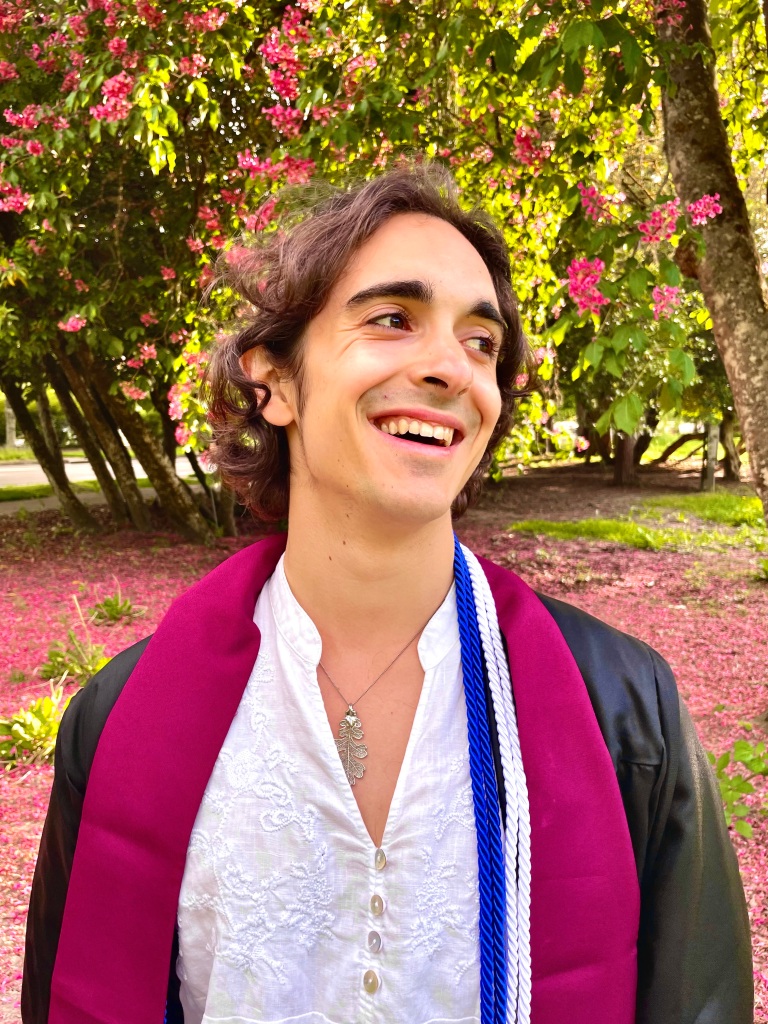SAFN is pleased to announce that the annual Christine Wilson undergraduate paper award winner is Hunter McKenzie Calvert for his � More
SAFN is pleased to announce that the annual Christine Wilson undergraduate paper award winner is Hunter McKenzie Calvert for his paper on �Relationships as Infrastructure: Understanding student food insecurity and motivating OSU community solutions.��
Hunter Calvert is a fresh graduate from Oregon State University (OSU) with an H.B.S. in Environmental Science and a certification in Food in Culture and Social Justice. His undergraduate thesis project studied the systemic roots of food insecurity on campus and examined the importance of relationships and social networks for understanding barriers and driving care interventions. In his thesis, Hunter asks: how can the elusive-yet-palpable dynamics of campus relationships and culture elucidate hidden causes of food insecurity, and how are relationships practically important for solutions?�
The results suggest that relationships and social networks are overlooked university infrastructure through which essential resources, information, values, and positive changes are passed. For example, Hunter highlights key relational dynamics in a student-decisionmaker disconnect which reduced advocacy for student needs, social isolation due to finance and time scarcity causing student community disengagement, and especially cultural stigma around food insecurity and basic needs support which deterred both access to care and motivation for institutional support. The thesis finishes with five �toolboxes� or practices based in relationships as infrastructure to add to the reader�s existing care toolbelt, going on to propose a list of specific actions to be taken on the institutional, community, and relational scale to support a culture of care and more robust basic needs support systems on campus.
Hunter practiced on-the-ground care at the Basic Needs Center at OSU, a community-based resource center including a food pantry, emergency housing, academic resources, and drop-in support. As a student leader and peer navigator, Hunter worked to problem-solved basic needs crises faced by students and community members, ranging from housing and food insecurity to academic support, often intertwined. Hunter led and helped plan events to build community around basic needs support and destigmatize care. He featured in publications for The Oregonian, The Chronicle of Higher Education, Georgetown�s The Feed, and OSU�s The Daily Barometer, advocating for the organization�s mission and student basic needs support.
Hunter�s community engagement extended to the OSU Baccalaureate Core Reform Committee, where he represented students among members of the faculty senate to help craft changes to OSU�s general education. The changes were passed, implementing a new unique curriculum with increased focus on social and environmental justice, navigating complex global problems, and supporting underserved populations.�
Since graduating, Hunter has been working in community care and food projects while considering graduate programs and career paths along the intersection of sustainable food systems, public health, and social change science. Hunter plans to enroll in a graduate program that best satisfies these interests and equips him with skills to help inspire sustainable infrastructures of care in communities from the soil up.








